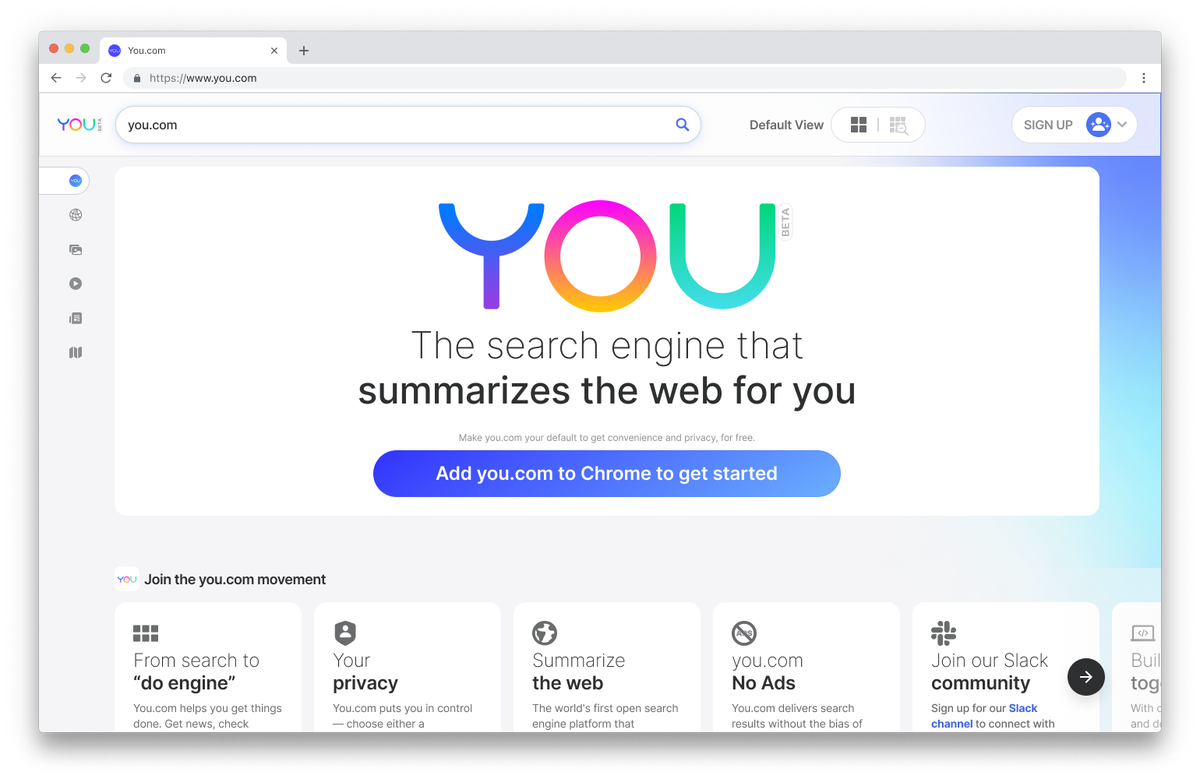U.S. Government Seeks To Dismantle Google's Dominance In Online Advertising

Table of Contents
Antitrust Concerns and the Case Against Google
The U.S. government's actions against Google are rooted in antitrust laws, designed to prevent monopolies and promote competition. These laws, primarily the Sherman Antitrust Act and the Clayton Antitrust Act, aim to protect consumers and businesses from anti-competitive practices that stifle innovation and limit choices. The core allegation against Google is that it has abused its dominant market position in online advertising through a range of anti-competitive practices.
The government's case focuses on several key areas:
- Manipulation of ad auctions: Google is accused of manipulating its ad auctions to favor its own products, like Google Ads and AdSense, giving them an unfair advantage over competitors. This allegedly limits the opportunities for smaller advertising platforms and reduces transparency within the auction process.
- Preferential treatment of its own products: Allegations include Google prioritizing its own products in search results and other placements, effectively excluding or disadvantaging competing ad platforms and technologies. This preferential treatment, critics argue, creates an uneven playing field and limits choices for advertisers and consumers alike.
- Exclusive deals and contractual restrictions: The government's investigation may also explore allegations that Google has used exclusive contracts with websites and publishers, preventing them from using competing advertising platforms.
Examples of Google's alleged anti-competitive behavior:
- Prioritizing Google Ads and AdSense in search results and other Google properties.
- Imposing restrictive clauses in contracts with publishers and websites.
- Employing algorithms that favor Google's own products within its advertising platforms.
Previous investigations and fines levied against Google related to advertising practices, both domestically and internationally, further fuel concerns regarding its anti-competitive actions. These past actions have set the stage for the current, more comprehensive government intervention.
The Impact on Advertisers and Consumers
Google's dominance in online advertising has profound implications for both advertisers and consumers.
Impact on Advertisers:
- Lack of competition: The limited number of viable alternatives increases Google's bargaining power, potentially leading to higher advertising costs for businesses.
- Reduced choice: Advertisers have fewer options and less control over their campaigns, making it difficult to differentiate and reach their target audiences effectively.
- Limited innovation: A lack of competition can stifle innovation in ad tech and limit the development of more efficient and effective advertising solutions.
Impact on Consumers:
- Higher prices: The higher costs incurred by advertisers are often passed on to consumers through higher prices for goods and services.
- Reduced choice and diversity: A lack of competition in online advertising can limit the diversity of products and services available to consumers.
- Targeted advertising abuse: Concerns exist regarding the potential for abuse of highly targeted advertising practices, which can lead to privacy violations and manipulation.
Examples of how smaller advertisers are disadvantaged:
- Smaller advertisers often lack the resources to compete with larger companies using Google Ads.
- Reduced transparency makes it harder for smaller businesses to understand and navigate the complexities of the advertising marketplace.
- Google's algorithms can make it difficult for smaller businesses to gain visibility in search results.
The lack of transparency in the ad tech ecosystem also raises concerns about the potential for hidden fees and unfair practices against smaller players.
Potential Outcomes and Future of Online Advertising
Successfully challenging Google's dominance could lead to several positive outcomes:
- Increased competition: This would likely lead to more choices for advertisers, potentially lowering advertising costs and fostering innovation.
- Lower advertising costs: More competitors in the market could drive down prices, making advertising more affordable for businesses of all sizes.
- Greater transparency: Increased competition could lead to greater transparency in ad pricing and practices, benefiting both advertisers and consumers.
However, regulating such a complex and rapidly evolving market presents significant challenges. The digital advertising landscape is constantly shifting, making it difficult for regulators to keep up with the latest technologies and business practices.
Potential changes in the online advertising landscape:
- Emergence of new, competitive advertising platforms.
- Increased focus on privacy and data security.
- Greater emphasis on transparency and accountability in ad tech.
The potential entry of new players into the market, coupled with the growing adoption of alternative ad platforms, could significantly reshape the industry.
Google's Response and Defense Strategies
Google has consistently maintained that it fosters competition and innovation within the digital advertising sector. Its arguments often center on:
- Investments in ad tech: Google emphasizes its significant investments in research and development within the ad tech sector, claiming that these contributions have benefited the entire industry.
- Claims of fostering competition: Google argues that its advertising platforms provide a level playing field for various advertisers, fostering competition rather than stifling it.
- User benefits: Google claims its advertising platform enables businesses to reach consumers effectively, which benefits both businesses and users.
Google has likely initiated legal challenges and appeals to counter the government's actions, employing extensive legal resources to defend its position. Any proposed changes to Google's business practices would likely be strategically designed to address regulatory concerns while minimizing disruption to its core operations.
Conclusion: The Future of Google's Grip on Online Advertising
The U.S. government's efforts to challenge Google's dominance in online advertising represent a crucial moment for the future of the digital economy. The potential implications for advertisers, consumers, and the broader online advertising ecosystem are profound. The outcome of this legal battle will likely shape the landscape of online advertising for years to come, influencing pricing, innovation, and competition. The long-term impact remains uncertain, but the ongoing legal battle will undoubtedly reshape the dynamics of the online advertising market.
This case highlights the complexities of regulating powerful tech companies and underscores the need for ongoing vigilance in maintaining a competitive and fair digital marketplace. Stay informed about the developments in this case and its implications for the future of U.S. government regulation of online advertising and Google’s role in it. Further reading on antitrust law, digital advertising, and online competition is encouraged to fully grasp the intricacies of this evolving situation.

Featured Posts
-
 Open Ais 2024 Event Easier Voice Assistant Creation Announced
May 05, 2025
Open Ais 2024 Event Easier Voice Assistant Creation Announced
May 05, 2025 -
 Heatwave Alert Five South Bengal Districts Brace For Extreme Heat
May 05, 2025
Heatwave Alert Five South Bengal Districts Brace For Extreme Heat
May 05, 2025 -
 Golden Knights Stanley Cup Contenders Vegass Road To The Final
May 05, 2025
Golden Knights Stanley Cup Contenders Vegass Road To The Final
May 05, 2025 -
 Lizzos Weight Loss Journey The Details Behind The Headlines
May 05, 2025
Lizzos Weight Loss Journey The Details Behind The Headlines
May 05, 2025 -
 Watch The Chicago Cubs Vs La Dodgers Mlb Tokyo Series Online
May 05, 2025
Watch The Chicago Cubs Vs La Dodgers Mlb Tokyo Series Online
May 05, 2025
Latest Posts
-
 16 Year Olds Death Stepfather Indicted On Multiple Charges
May 05, 2025
16 Year Olds Death Stepfather Indicted On Multiple Charges
May 05, 2025 -
 Murder And Torture Charges Filed Against Stepfather In Teens Case
May 05, 2025
Murder And Torture Charges Filed Against Stepfather In Teens Case
May 05, 2025 -
 Cults Gambling Addiction Leads To Child Abuse Charges And Imprisonment
May 05, 2025
Cults Gambling Addiction Leads To Child Abuse Charges And Imprisonment
May 05, 2025 -
 Stepfather Faces Murder And Torture Charges In Death Of 16 Year Old
May 05, 2025
Stepfather Faces Murder And Torture Charges In Death Of 16 Year Old
May 05, 2025 -
 Jail Sentences For Cult Members Child Gambling Case
May 05, 2025
Jail Sentences For Cult Members Child Gambling Case
May 05, 2025
